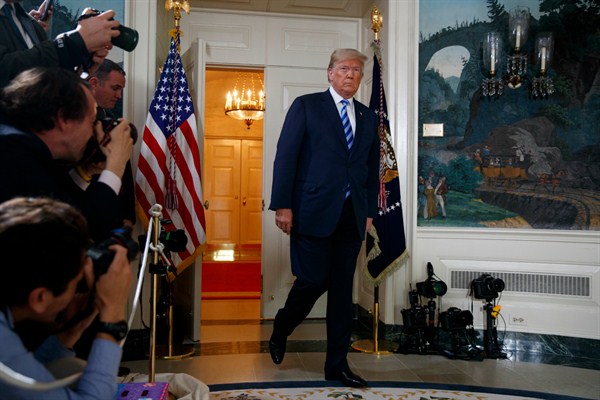In politics, as in marital disputes, being right is overrated. That lesson was learned the hard way by defenders of the Iran nuclear deal, which President Donald Trump formally pulled the United States out of yesterday.
No one, even among the deal’s most ardent supporters, disputes the claim that the agreement is flawed and imperfect from an American perspective. After all, it required compromises and concessions that were necessary to reach a negotiated, rather than an imposed, final agreement. Whether or not those concessions were too generous is a valid subject of debate. It is possible, though unprovable, that Iran might have been willing to give away more at the bargaining table in return for relief from the crippling sanctions it was facing at the time the deal was made three years ago.
What is striking, however, is the consensus among national security experts in the U.S. and Israel that the deal has been a net positive with regard to the credible nuclear threat posed by Iran. Specifically, the deal has added at least 10 years to the clock in terms of Tehran’s ability to achieve a nuclear “breakout.” Prior to the agreement, various intelligence estimates had put that delay, in theory, at between three months and a year.

